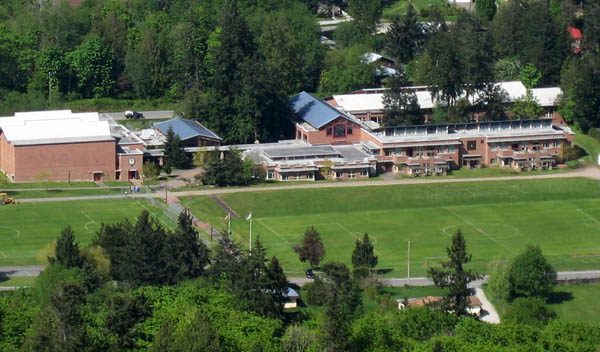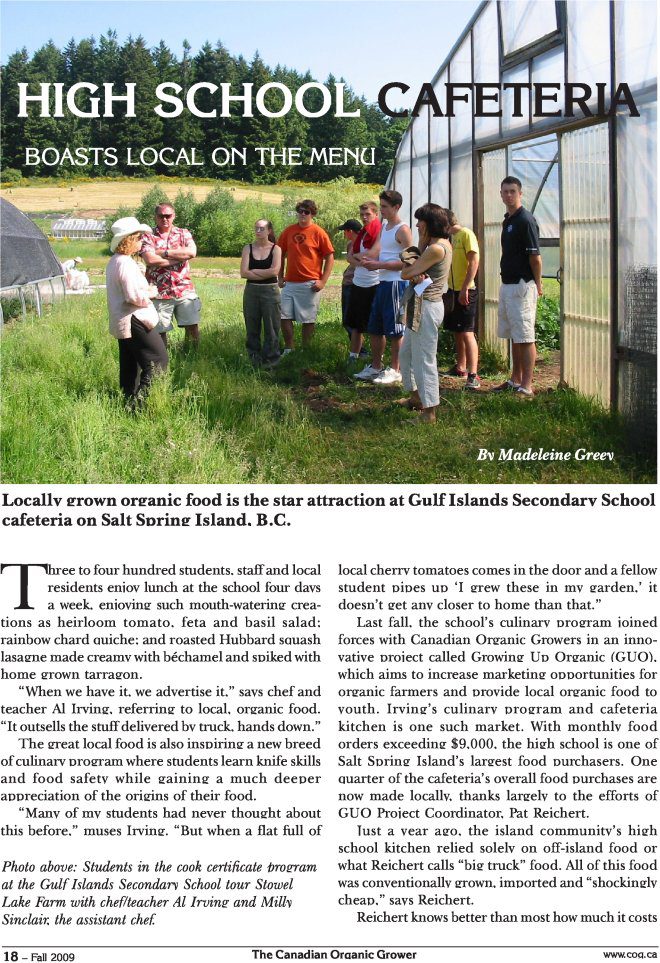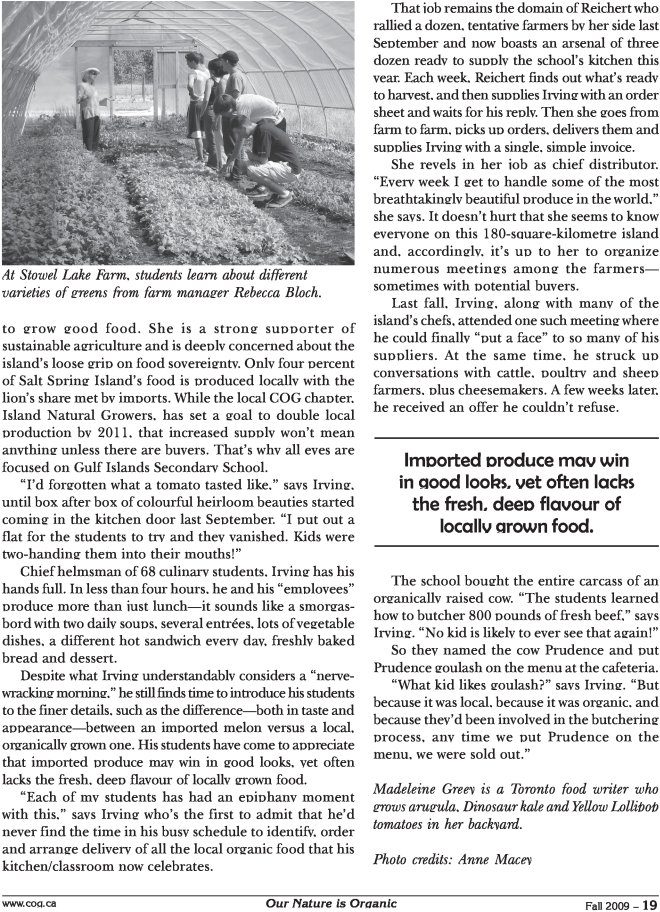Farm to Cafeteria project at Gulf Islands Secondary School. Greenhouse with hydroponics and aquaponics growing systems and Tilapia, rainwater collection, worm composting and composting systems, and garden.
Objectives
To provide students with advanced culinary skills; to make the direct connection between farm and table; and to transform the student-run school cafeteria menu to provide healthy and environmentally sustainable food. The challenge was to balance the budget using cafeteria sales to pay for all ingredients.
Changing the menu
In teaching culinary arts, Chef Mark Kilner’s philosophy is that students learn how to cook everything from scratch, that they know how to select good ingredients, and where those ingredients come from. The results are delicious and not typical cafeteria fare. The first thing Chef Mark Kilner did when joining GISS three years ago was to replace the deep fryer with a salad bar. To his surprise, the salad bar was a success.
Sourcing local ingredients
The next challenge was to replace at least some of the conventional ingredients used in the cafeteria with locally grown and organic ingredients without breaking the budget. Local farmers provided sides of lamb and some vegetables, but a complete switch was not possible. Chef Mark decided to grow tomatoes at a rented farm and, with the help
of his students, produced enough for sauces for the entire year. A small unused area behind the cafeteria was converted to raised beds to grow salad greens and other fresh produce to supply the cafeteria for part of the year.
Hydroponic salad production
A greenhouse was needed to extend the growing season and expand capacity. After some fundraising and with the help of Jane Squier of Living Lettuce, a greenhouse was constructed and hydroponic systems set up to produce salad greens.
Tilapia
A tank at the end of the greenhouse contains several dozen Tilapia, a fast growing vegetarian fish from the tropics. Water from the fish tank is circulated through adjacent tomato beds where the fish-fertilized water is producing enormous tomato vines.
Rainwater collection
Rainwater is harvested from the roof to supply the hydroponics system and the garden. More storage is needed to make the gardens completely independent of town water.
Composting
Some of the cafeteria waste is diverted to a series of composters behind the greenhouse. Various systems are being trialed by students and staff, including worm composting. The finished compost is applied to the raised beds.
“Salt Spring Salads” Salad food truck
One of the problems with school gardens is that they are most productive during the summer vacation when school is closed. Chef Mark and his students have found a solution: a summer salad stand. Student entrepreneurs are responsible for operating the salad stand, which is housed in a small trailer parked beside Mahon Hall. Every day through the summer fresh salads from the school greenhouse and gardens are served from the salad stand. Come try it!
For more information:
Chef Mark Kilner
Aquaponics
Milo Demandre
Hydroponics
Jane Squier
janesquier@gmail.com



